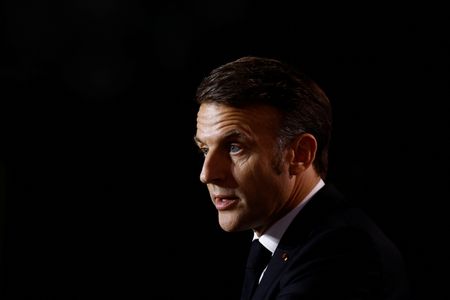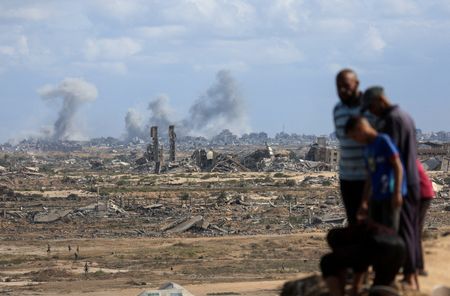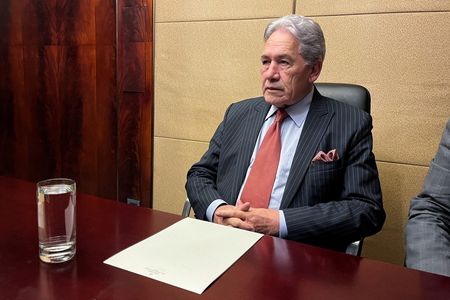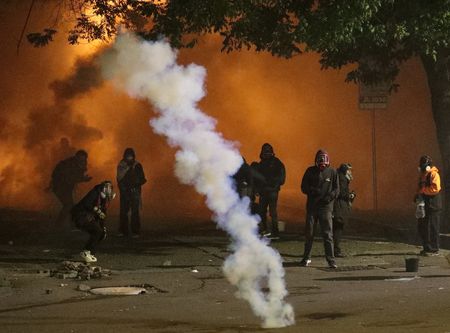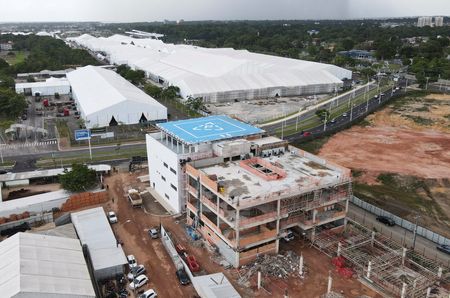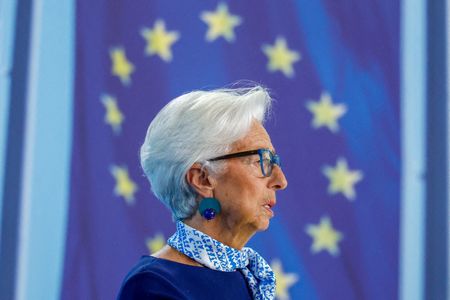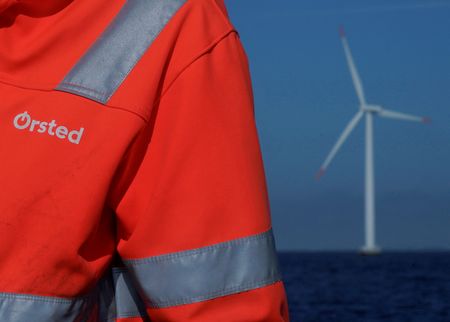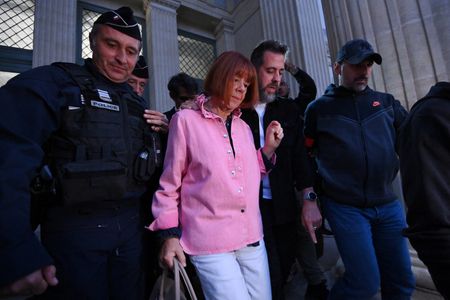By Michel Rose
PARIS (Reuters) -Hours after his latest prime minister was forced to resign — unable to form a cabinet that lasted more than a day — French President Emmanuel Macron was spotted walking alone by the Seine in the chilly autumn morning.
Bodyguards kept their distance ahead and behind as he wandered out through a wrought iron gate onto the stone embankment in a black overcoat.
The scene, captured from afar on video and shown on French TV, evoked images of Charles de Gaulle seeking solace in the wind-swept plains of Ireland after his resignation in the late 1960s — a leader retreating inward as his political era drew to a close.
Macron is president until 2027, but the resignation of Sebastien Lecornu, his fifth prime minister in two years, has raised the chances that the one-time golden boy of French politics fails to make it to the end of his final term.
Macron appeared determined to avoid that fate on Monday, giving Lecornu two days for last-ditch talks with the opposition to try to chart a path out of the morass.
By asking Lecornu to give it one last shot, Macron signalled his distaste for the only other options he faces – fresh parliamentary elections that could hand power to the far right, or his own resignation, a measure he has repeatedly ruled out.
As his options have narrowed, the unpopular Macron has become increasingly isolated domestically, watching erstwhile allies distance themselves as they seek to bolster their own chances of succeeding him in the 2027 election.
Nearly half of French people blame Macron for the current crisis, while 51% of them believe his resignation could break the stalemate, according to an Elabe poll for BFMTV on Monday.
“Macron now finds himself isolated, without direction or support. He must draw the consequences: either resignation or dissolution,” far-right National Rally lawmaker Philippe Ballard posted on X.
FAILED 2024 ELECTION DECISION SPARKED ONGOING CRISIS
Since last year’s failed gamble to call a snap legislative vote, which produced a hung parliament split between three ideologically opposed blocs, Macron has tried to muddle through with minority cabinets.
Determined to preserve his economic legacy of tax cuts and a pension overhaul at a time of growing investor concern about France’s yawning deficit, Macron has appointed premiers from an ad-hoc alliance of conservatives and centrists.
For over a year, these governments struggled to pass deficit-reduction measures. Two prime ministers fell over their inability to fix public finances, but the so-called socle commun — or “common platform” — endured.
That changed with the dramatic rebellion of Bruno Retailleau, the conservatives’ most high-profile figure, who late on Sunday publicly criticised Lecornu’s cabinet hours after it was named.
Macron is hoping Lecornu can lure back the conservatives to the table, giving him a lifeline. If not, he could appoint a left-leaning prime minister, but the Socialists’ insistence on a wealth tax and reversing the pension reform makes them a hard sell for other parties.
PRESSURE ON MACRON NOT GOING AWAY
Despite Monday’s appeal to Lecornu, the pressure on Macron is unlikely to let up.
Marine Le Pen, leader of the far-right National Rally (RN)quickly called for a dissolution of parliament and new elections. Polls show her party leads voting intentions.
“The RN benefits from the centre’s collapse and picks up protest votes, seeing dissolution as a unique opportunity to finally govern,” said political analyst Stewart Chau.
Calls for Macron’s resignation, once confined to the fringes, are now entering the mainstream.
“France’s national interest demands that Emmanuel Macron set a date for his resignation, in order to preserve the institutions and unblock a situation that has been unavoidable since the absurd dissolution,” said David Lisnard, the mayor of Cannes and a rising conservative figure, on social media.
Macron has repeatedly said he intends to serve out his full term. But faced with few palatable options, he may yet choose to end his presidency with a dramatic gesture — just like de Gaulle, who stepped down in 1969.
(Reporting by Michel RoseEditing by Gabriel Stargardter and Peter Graff)

